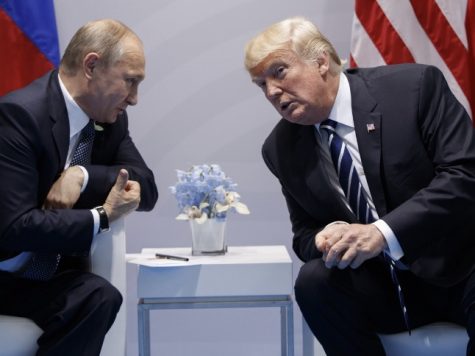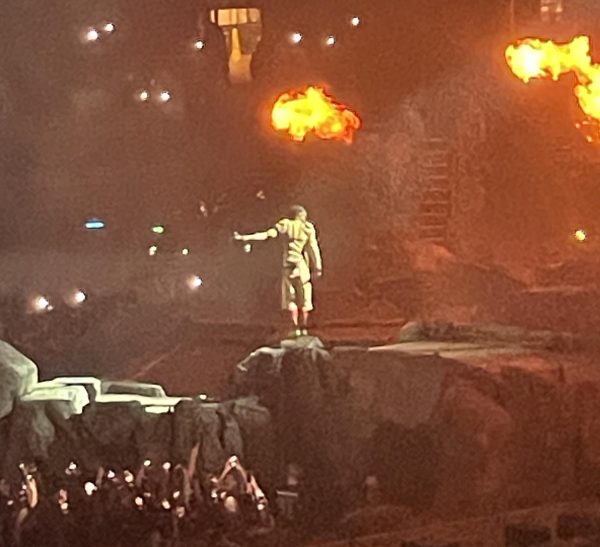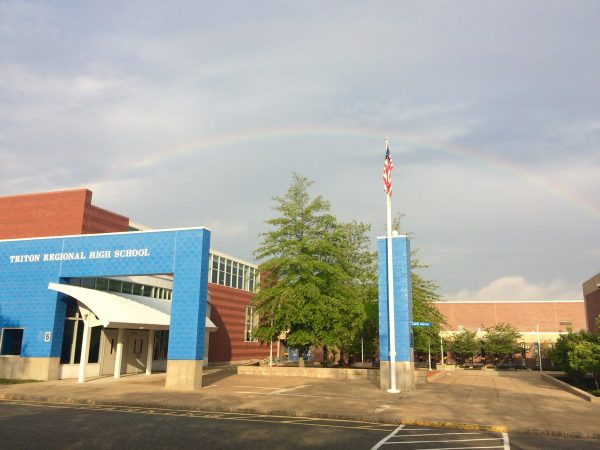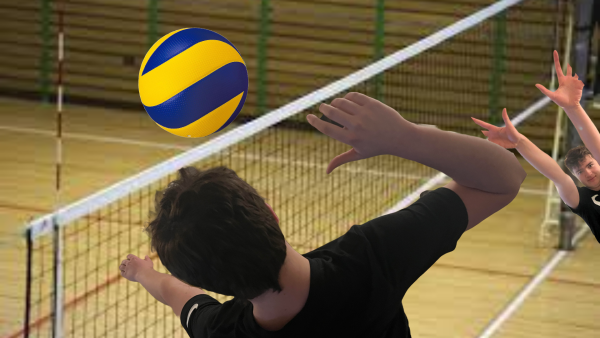Russia: Friend or Foe?
December 20, 2017
Russia: Friend or Foe?
Insight into the public opinion about Russia and the history of their relations with the US

By Steve Baiardi and Owen Heffernan
Staff Writers
The United States is commonly referred to as a superpower in terms of military strength and diplomatic opportunity among the United Nations and NATO. However, we are not the only one with power of this magnitude. Russia has been at the forefront of world influence since World War II, yet over time, Russia’s powerhold has led to some controversial actions. The question now becomes, is Russia now a threat to the US or has it just always been this way?
“We have always been rivals,” says Tim Coyle, a history teacher at Triton. “If not directly hostile toward one another. Even in that weird post-Soviet time when Boris Yeltsin and Bill Clinton were doing their thing, there was still tension between the two countries because of conflicting interests being the only superpowers in a bipolar world.”
Fellow history teacher Daniel Boyle agrees that the US and Russia have always been foes. Boyle says, “The Soviet Union, now Russia, has always been a problem and an issue because of the Cold War of 75 some odd years. You can go back even further to at the end of World War One, the US sent troops to overthrow the Russian communist party and put the czar back in place. There has always been mistrust between Russia and the United States”.
In 1933, the United States formally recognizes the USSR, and the countries establish diplomatic relations. In 1941, President Franklin Roosevelt gives the USSR and other countries millions of dollars worth of weapons and other support for their fight against Nazi Germany. Finally, in 1945, the US and Soviet Union end World War II as allies. However, things took a turn for the worse around 1947, when the struggle for influence over certain regions of the world, became hostile between the two countries. That unsettling era that nearly sparked the beginning of World War III was later dubbed, the Cold War. Later on in 1957, the Space Race began. After the Soviets launched Sputnik into orbit, the US doubled down on its science and engineering programs eventually leading to be the first country in the world to land a man on the moon. In 2003, the Russians strongly opposed both the American-led invasion of Iraq, and a 2007 plan to build an anti-ballistic missile defense system in Poland, causing some tension for the future agenda of the two nations.
When asked about Russia’s relations to the US, Triton junior said, “It is not a good relationship and I don’t think it will ever improve. Throughout history we have never really had a good relationship with them and I don’t think it will start soon or anytime at all”. With all the news lately about the Russians involvement in the elections and on social media, it is a well known news topic even amongst high schoolers. Senior Steven Particelli said, ¨It is a problem because it is not their election it’s ours”. Particelli also commented on the future of our relations with our “comrades”. He doesn’t see positive improvement in the near future and he said, ¨I don’t think Trump is suitable to make foreign relations better with them”.
The future of our relations with Russia are a little shaky. According to Coyle it will take a “global crisis of some sort” to level our needs with Russia’s. Boyle said, “It can be done as long as you have reasonable thinking people”. Either way, right now we are clearly not the best of friends and it will take some time to make progress.







